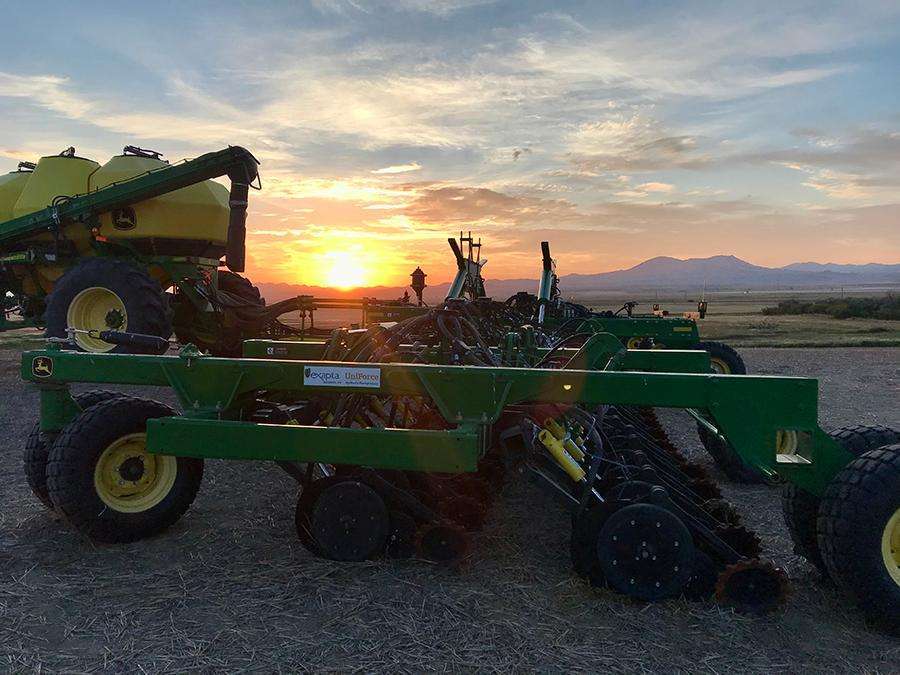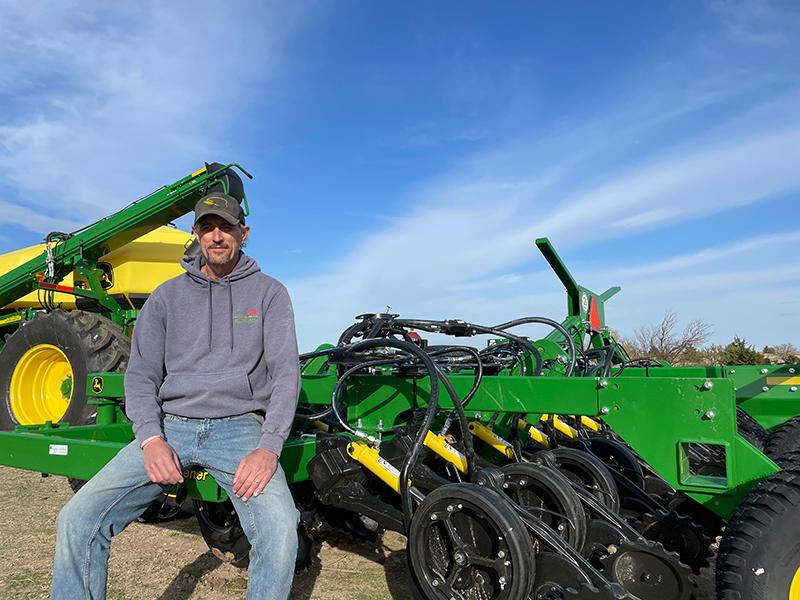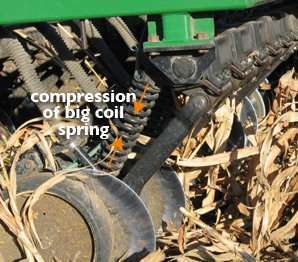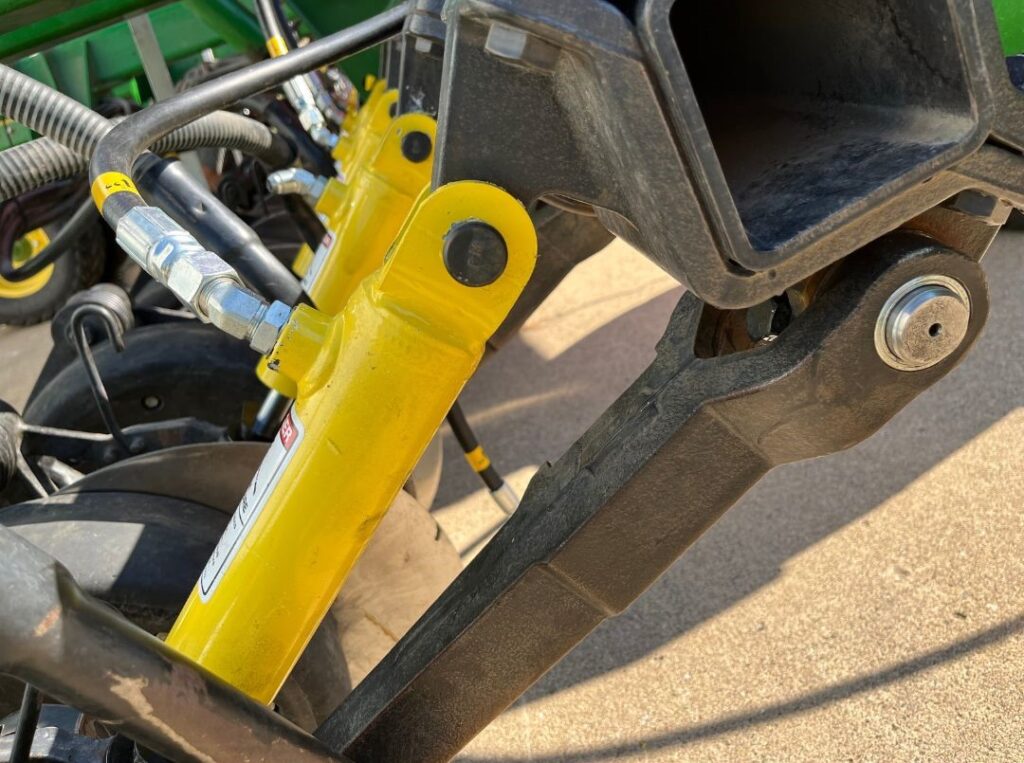
Planting a seed is such a leap of faith: relying on mother nature and the tools that we have to place the seeds in the ground so it sprouts and emerges in a timely manner, and so that all the seedlings will grow and yield to their potential. You want your drill to be at its best because that is the part of seedling emergence in your control. Your drill won’t improve on its own, but there are some improvements to be made to get the openers work better.
The John Deere single disc opener remains our top recommendation for no-till drills. Key features include a gauge wheel next to the opener blade and a firming wheel to ensure proper seed placement. Unlike other designs that rely on closing wheels to perform these tasks, the John Deere opener separates these functions, resulting in more efficient and effective operation. The worst downfall of these drills is the way that downforce is applied to the opener- rockshaft twists to compress a big coil spring on each opener. The swing-arm design, where the opener pivots from a single point (rather than a parallel link) is not as efficient in following the contours of the ground. The worst issue with the 50/60/90 opener is the way downforce is leveraged. Because the spring is nearly parallel to the swing-arm, it has almost no down-stroke. In actuality, the spring is applying the correct amount of downforce for only about ¼” of the openers range. Had the spring been oriented so it was pushing straight down, this downforce problem would be minor. But because of opener spring design, you must have fields that are laser level for the openers to work correctly. Even 0.5-inch depressions give them fits. The spring starts to relax as the opener goes into these minuscule depressions, and you lose downforce, which shallows up the depth and causes hair pinning. To compensate, you must crank the pressure way up—so that most of the openers have far too much pressure, just to keep the ones passing through mild depressions penetrating. You end up with excessive sidewall compaction on most of the rows, while some are not even holding depth.
Replacing the spring with a hydraulic cylinder on each row makes up for these problems. UniForce ties all the openers together in one system to move oil where it is needed. Currently, setting the gauge on the rockshaft at 1200 psi means that only when the spring is in the exact position vertically to transfer that pressure to the opener, does that opener get 200 lbs. of down pressure. Some openers will be in more compacted spots and need that 200 lbs. for the full up-down working range of the opener. UniForce keeps the set pressure at the openers, with no pressure loss based on the opener travel. Row units with UniForce installed run across the field much smoother, as pressure is consistent across all variations in the terrain of your field. Running smoother also means running faster. Average planting speeds are already seven to nine mph, but UniForce will do a better job maintaining depth at those speeds and higher.
Does this add up to increased yield? Our first trial a few years ago suggested a 2.8 bu/acre difference in soybeans vs springs. We have long been saying that consistent depth of seed is more important than perfect spacing. This is true on drills where we are seeing much better emergence in tougher areas of fields because of the even depth of seed that UniForce provides. It’s the low yielding spots that really hurt overall field averages. Planting over terraces is a big issue with these openers and UniForce eliminates the bald spots seen in terraces where the opener fails to stay in the ground as it travels over the terrace.
A single disc drill should not be hair pinning residue unless the previous harvest or wind made a mess of residue. If you feel like you’re not cutting through residue there’s a good chance that it’s from the spring relaxing and not holding down pressure. We are confident that UniForce can improve your emergence and make your fields much more consistent.



